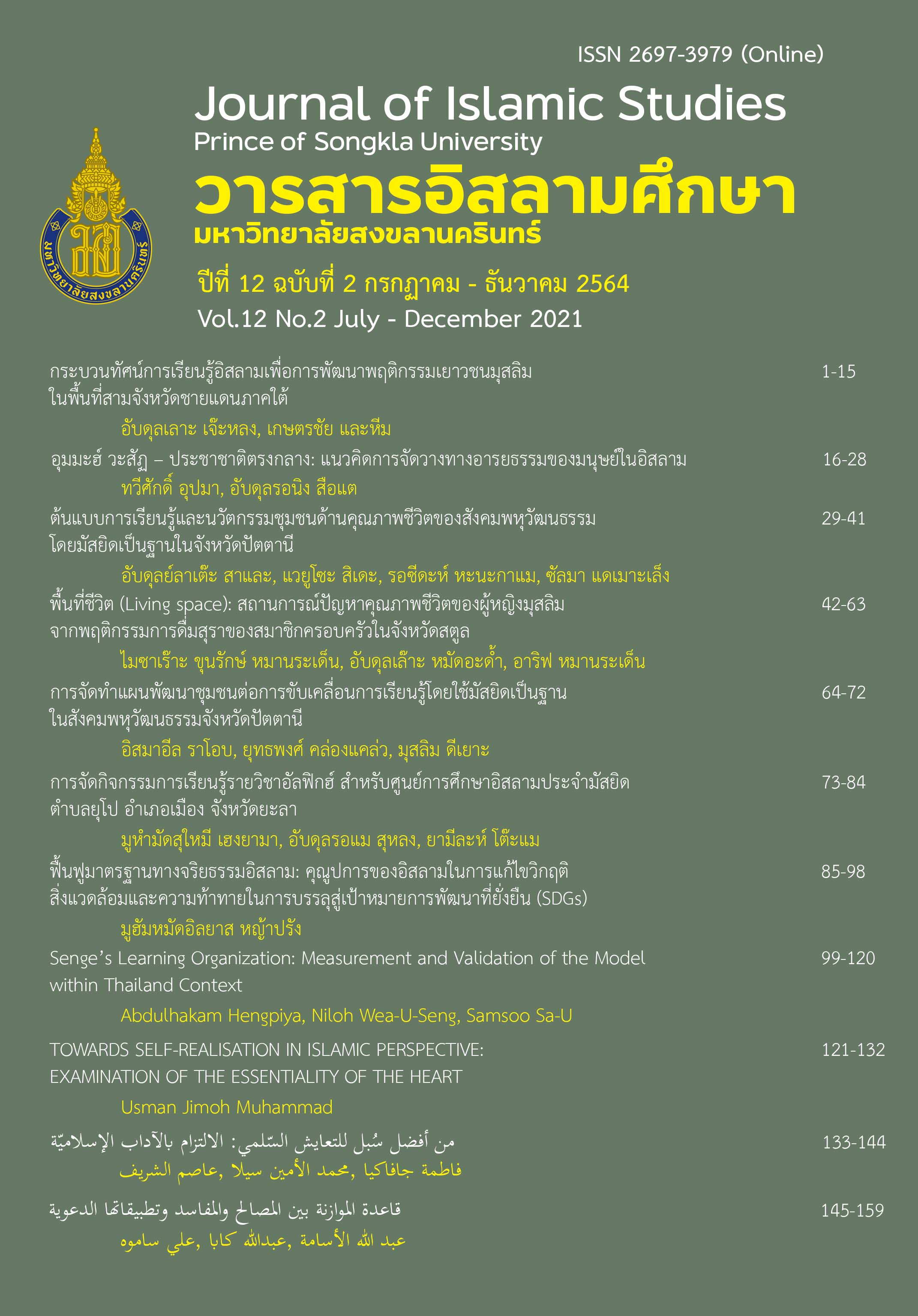Reviving Islamic Ethics: A contribution of Islam to Solving Environmental Crisis and the Challenge of Achieving Sustainable Development Goals: SDGs
Keywords:
Human nature, amanah, fitrah, khalifah, sustainable development Goals (SDGs)Abstract
Objective To study the construction of meanings and production of knowledge on human nature and worldview of the Enlightenment project underpinning the modern thoughts which responsible for the destruction of environment, in comparison with the Islamic worldview and meaning of man which provide the ethical principles for the protection and preservation of the planet Earth.
Methodology Documentary, the use of academic works on western-modern philosophy, industrial revolution and its devastating effects on the environment. The writings on Islamic philosophy and the critique of western thoughts by Muslim as well as non-Muslim thinkers are consulted. The sacred texts of Islam are also extensively referred to.
Research Findings The construction of meanings and production of knowledge on human nature and worldview of the Enlightenment project insists that human is nothing but matter devoid of spiritual significant. This perspective maintains that man is being categorized as animal, and like other animals their very existence is to compete for a survival. The concept of human nature as being the same as those of animals has been well established by the Enlightenment project. Similarly, knowledge of the meaning of the planet earth established that nature is but material resources waiting to be exploited to serve insatiable desire of man. This concept of human nature and the meaning of the planet earth give rise to the unprecedented destruction of environment and the devasting impact on man and his societies. Islam, however viewed man as spiritual being or ethical being. The essence of man is spiritual with its disposition toward higher ethical accomplishment. The mother earth has her own spirit, embed in it a life-support system. Thus, both man and the earth are one organic whole responsible for one another. The Islamic concepts of Amanah (trust), Firtah (purity) and Khalifah (bearer), among others are well established as the ethical back bones for protection and preservation of the environment.
Applications Islamic Knowledge on the meaning of man, the natural world and their relationships as well as the ethical principles of khalifah, amanah, fitrah, and the noble origin of man can be tough, particularly, in the primary and secondary’s curricula.
Keyword: Human nature, amanah, fitrah, khalifah, sustainable development Goals (SDGs)
References
Al-Attas, S. N. (1993). Islam and Secularism. ISTAC.
Ansari, M. I. (1995). Islamic Perspective on Sustainable Development. The American Journal of Islamic Social sciences, 11(3), 394.
Bakar, O. (2016). Understanding the Challenge of Global Warming in the Light of the Qur’anic Idea of Earth as Our only Planetary Home. In I. Yusuf (ed.,). A Planetary and Global Ethics for Climate Change and Sustainable Energy. (117-141). Konrad-Adenauer-Stiftung.
Bluntschli, J. K. (2000). The theory of State. Batoche Books.
Dove, M. (2006). Indigenous People and Environmental Politics. In Annual Review of Anthropology, 35, 32.
Eaton, C. G. L. (1993). Islam and the Environment. In Islamica: The Journal of the London School of Economic and Political Science, 1(2), 18-19.
Foltz, R. (2016). The Environmental Crisis and Global Violence: A matter of Misplaced values. In I. Yusuf (ed.,). A Planetary and Global Ethics for Climate Change and Sustainable Energy. (21-35). Konrad-Adenauer-Stiftung.
Kamali, M. H. (2010). The Right to Education, Work and Welfare in Islam. The Islamic Texts Society.
Nasr, S. H. (1968). The Encounter of Man and Nature: The Spiritual Crisis of Modern Man. Allen and Unwin.
Nelson, R. (2001). Economic as Religion. Penn State Press.
Sardar, Z. (1989). An Early Crescent: The Future of Knowledge and Environment in Islam (eds.). Mansell.
Wandell, B. (2012). Home Economics. San Francisco: North Point Press. Kant, I. (n.d.) What is Enlightenment. สืบค้น 10 ตุลาคม 2564, จากhttp://www.columbia.edu/acis/ets/CCREAD/ etscc/kant.html
New York Times. nytimes/status/1395054191152934920 (สืบค้น 18 กันยายน 2564)
Voice Online. (2021, 15 Aug). ญี่ปุ่นเตือนภัยฝนระดับสูงสุด แนะอพยพด่วนเกือบ 2 คน. สืบค้นจาก https://www.voicetv.co.th/read/1qRn481iU?fbclid=IwAR33VRRLsRdj6Morwxv6mVnPJw7FtR7xZq2 p-n3xaYdAC2yLRGhGHzQxn4E
สำนักงานคณะกรรมการพัฒนาการเศรษฐกิจและสังคมแห่งชาติ. สืบค้นจาก https://sdgs.nesdc.go.th/
Downloads
Published
How to Cite
Issue
Section
License
Copyright (c) 2021 Journal of Islamic Studies, Prince of Songkla University

This work is licensed under a Creative Commons Attribution 4.0 International License.
All articles Published in The Journal of Islamic Studies are author’s opinions, and not the responsibility of the Faculty of Islamic Sciences nor the editorial board. However any citation should be referred to the journal.
















